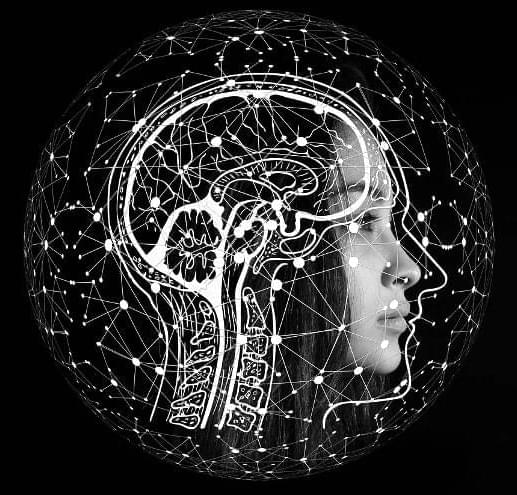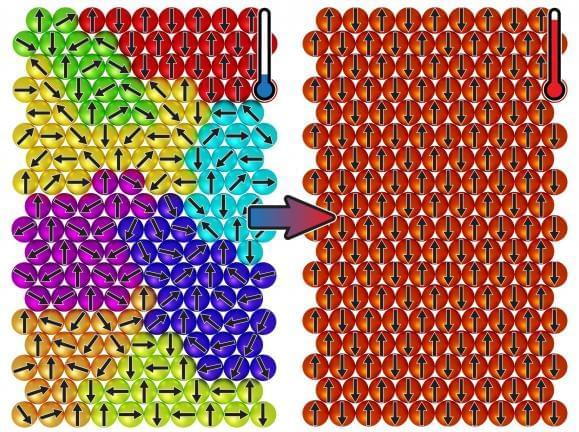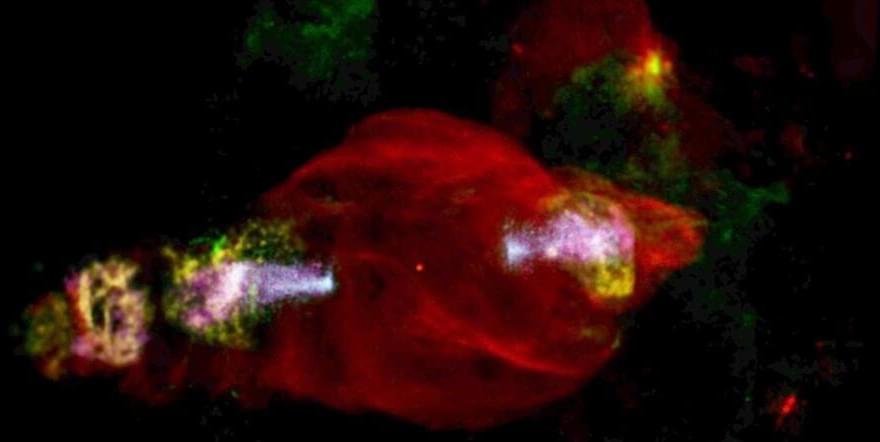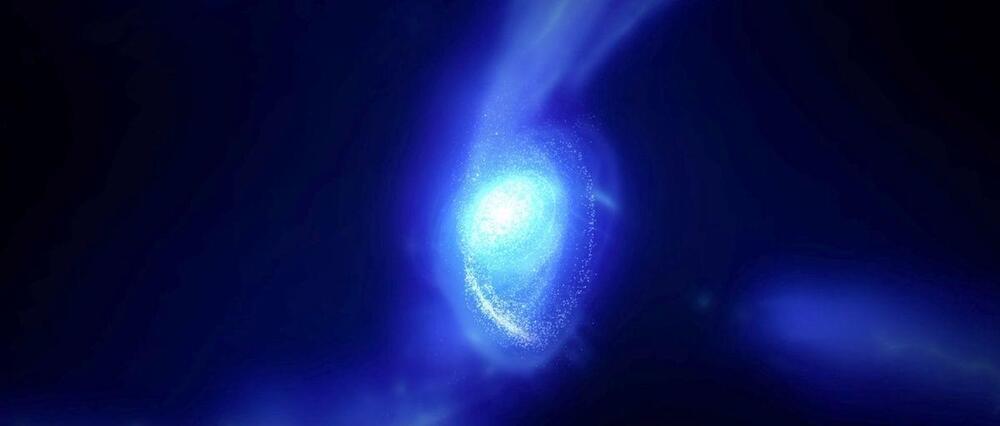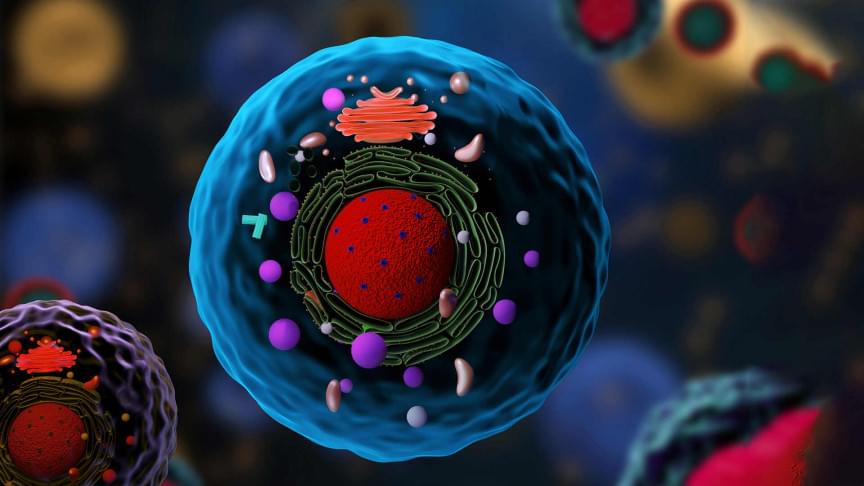Physicists observed a strange new type of behaviour in a magnetic material when it’s heated up. The magnetic spins ‘freeze’ into a static pattern when the temperature rises, a phenomenon that normally occurs when the temperature decreases. They publish their findings in Nature Physics on July 4th.
The researchers discovered the phenomenon in the material neodymium, an element that they described several years ago as a ‘self-induced spin glass’. Spin glasses are typically alloys where iron atoms for example are randomly mixed into a grid of copper atoms. Each iron atom behaves like a small magnet, or a spin. These randomly placed spins point in all kinds of directions.
Unlike conventional spin glasses, where there is random mixing of magnetic materials, neodymium is an element and without significant amounts of any other material, shows glassy behavior in its crystalline form. The spins form patterns that whirl like a helix, and this whirling is random and constantly changes.

